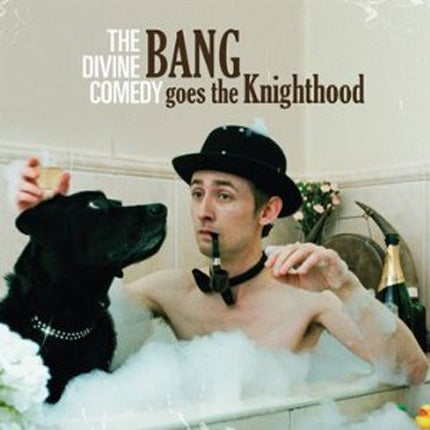Your support helps us to tell the story
From reproductive rights to climate change to Big Tech, The Independent is on the ground when the story is developing. Whether it's investigating the financials of Elon Musk's pro-Trump PAC or producing our latest documentary, 'The A Word', which shines a light on the American women fighting for reproductive rights, we know how important it is to parse out the facts from the messaging.
At such a critical moment in US history, we need reporters on the ground. Your donation allows us to keep sending journalists to speak to both sides of the story.
The Independent is trusted by Americans across the entire political spectrum. And unlike many other quality news outlets, we choose not to lock Americans out of our reporting and analysis with paywalls. We believe quality journalism should be available to everyone, paid for by those who can afford it.
Your support makes all the difference.He's depicted, on the front, as a cross between a bourgeois Magritte pipe-smoker and a Pythonesque Minister of Silly Walks caught in a sex scandal.
(He's sitting in a bath, naked but for a bow tie and a bowler, smoking a pipe and drinking champagne, with a diamanté-collared black Labrador sharing the foam and looking uneasy.) It feels like a wry, can't-beat-'em-join-'em acknowledgement from Neil Hannon of his public image as the kind of guy who does being English as only a true Irishman can. (See also Oscar Wilde.)
But the picture also reflects, it soon transpires, one of the overarching themes of Bang Goes the Knighthood: namely the private lives of the rich and the powerful, be they celebrities, aristocrats, politicians or financiers. Sometimes, as on the opening "Down in the Street Below", his technique is impressionistic, à la Jimmy Webb. Other times it's straight to the point. He comes on like a latter-day Lehrer on "The Complete Banker", a savage satire of the traders who precipitated the credit crunch.
Such flashes of anger are rare from Hannon, but when they come, they're always thrilling. He occasionally misfires: "Island Life" is a little too reminiscent of Pulp when they started singing about trees and sunrises, and the dated references of "At the Indie Disco" sound like the work of a man who hasn't been inside one for at least a decade.
The oompah-reggae shuffle of the Duckworth Lewis Method project is gone, and Hannon reverts to the lush orchestral pop with which DivCom are most closely associated. Several times, he reminds us that he is a master of genre: "Have You Ever Been in Love" sounds like an instant Tin Pan Alley standard; "When a Man Cries" sounds like an expertly translated Brel (yes, that good) and you can imagine hearing the daft, kiddie-friendly "Can You Stand Up on One Leg" on Ed "Stewpot" Stewart's Junior Choice circa 1975.
Always misfits during their Chris Evans-approved chart heyday, the Divine Comedy are proving that their value has far outlasted that, and their 10th album sees Hannon comfortably embracing his elegant outsiderdom, bow tie, bowler, Labrador and all.

Join our commenting forum
Join thought-provoking conversations, follow other Independent readers and see their replies
Comments